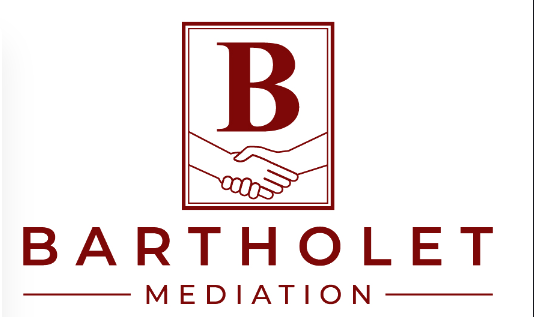If you’re preparing for your first mediation session, the process can seem daunting. This can be especially true if you’re a Spanish speaker in a legal landscape often geared towards English-speaking clients. Mediation expert Dominique Bartholet understands these challenges and has made it her mission to make mediation services accessible to Spanish speakers across all Texas counties. In this comprehensive guide, we will cover what to expect and how to prepare for your first mediation session, offering practical advice specifically tailored to Spanish-speaking clients in Texas.

The Evolution of Spanish-language Mediation Services in Texas
Before we delve into the specifics of preparing for your mediation session, it’s essential to understand the strides that have been made in making mediation accessible to Spanish speakers. For many years, the justice system has been primarily designed around English speakers, which left many Spanish-speaking Texans at a disadvantage. Over the years, professionals like Dominique Bartholet have championed the cause of bridging this gap. Her services are tailored to meet the cultural and linguistic needs of the Spanish-speaking population, ensuring that no one is left behind because of a language barrier. With her extensive reach across all Texas counties, Dominique Bartholet ensures that her services are available to all, from the big cities to the rural corners of the state.

What is Mediation?
Mediation is a dispute resolution process where a neutral third party, known as a mediator, assists two or more parties in reaching an agreement. Unlike court proceedings where a judge makes a decision, in mediation, the parties involved control the outcome. It is a more informal, less confrontational approach, which often makes it a preferable method for resolving disputes, especially sensitive ones like family or personal injury matters.

The Importance of Selecting the Right Mediator
Selecting the right mediator is critical. When you’re a Spanish speaker, it becomes essential to choose someone who not only understands the language but also the cultural nuances that come with it. This is where experts like Dominique Bartholet come into play. With experience mediating in all counties across Texas, she understands the particular challenges and benefits that come with serving a diverse clientele.
The role of a mediator is akin to that of a skilled conductor, harmonizing different instruments to create a cohesive musical piece. In the context of mediation, the mediator harmonizes conflicting interests to reach an equitable resolution. The importance of selecting the right mediator for your case cannot be overstated, as the quality of the mediation process and its outcome are often directly influenced by the mediator’s skill, experience, and approach.
For Spanish speakers, choosing the right mediator carries an additional layer of complexity. You not only require a mediator who is fluent in your language but also one who understands the cultural nuances that are part and parcel of your identity. These nuances may include understanding family dynamics, the importance of honor and respect in your culture, or the subtleties in communication styles that are typical among Spanish speakers.
Dominique Bartholet stands out in this space. Her broad experience in mediating cases across all counties of Texas gives her a deep understanding of the state’s demographic diversity. In regions where the Hispanic culture is deeply rooted, as is the case in many Texas counties, mediation services must adapt to meet these unique needs. It isn’t just about language; it’s about comprehending the values, norms, and expectations that shape how people approach conflicts and resolutions. Dominique Bartholet excels in this aspect, bringing to the table a sensitivity and awareness that go beyond linguistic fluency.
Additionally, her statewide reach underscores her commitment to making quality mediation services accessible, no matter where in Texas you may reside. This geographic inclusivity ensures that whether you are navigating a personal injury case in San Antonio or a family dispute in El Paso, you have access to top-tier, culturally competent mediation services.
Moreover, a mediator with such extensive experience as Dominique Bartholet has the added advantage of a broad perspective on a range of issues. This experience equips her with a toolkit of strategies and approaches that can be tailored to meet the unique requirements of each case. Whether your dispute involves intricate legal aspects, complicated family dynamics, or both, her varied experience enables her to adapt her mediation style to suit the situation effectively.
In conclusion, selecting the right mediator goes beyond mere professional credentials; it involves finding someone who can traverse the linguistic and cultural landscape as seamlessly as they navigate the legal one. In Texas, Dominique Bartholet’s extensive reach and tailored services make her an ideal choice for Spanish-speaking clients looking for an expert mediator who understands not just the language but the cultural intricacies that come with it.

Preparation is Key
- Understand the Process: Educate yourself about the mediation process and what it entails. The more you understand the process, the less intimidating it will be.
- List Your Concerns: Before going into mediation, make a list of the points you wish to discuss and resolve. Having a clear outline will help you stay focused during the session.
- Collect Relevant Documents: Whether it’s legal paperwork, financial statements, or any other relevant documents, have them organized and ready for reference during the mediation session.
- Set Realistic Expectations: It’s important to go into a mediation session with realistic expectations. The goal is to find a middle ground, so be prepared to compromise.

During the Mediation
- Open Mind and Active Listening: Keep an open mind and actively listen to the other party’s concerns and perspectives. The aim is to reach a resolution that is acceptable to both parties.
- Speak Your Mind but Stay Calm: Express your views clearly, but remember that mediation is about cooperation. Maintaining a calm demeanor can often help in achieving better results.
- Consult with Your Mediator: Don’t hesitate to ask for breaks to consult privately with your mediator if you feel overwhelmed or need clarification on any point.
- Post-Mediation and Next Steps: Once an agreement is reached, the mediator usually drafts a Memorandum of Understanding, summarizing the agreed-upon points. It’s essential to review this document carefully before signing.

Dominique Bartholet has been instrumental in transforming the landscape of Spanish-language mediation in Texas. Offering her specialized services across all Texas counties, she has set a new standard for inclusivity and accessibility in mediation services. Mediation can be a less intimidating and more constructive avenue for dispute resolution if you’re adequately prepared. This guide aims to demystify the process for Spanish-speaking clients in Texas, providing you with the tools you need for a successful mediation session. By being well-prepared, you can approach your first mediation session with confidence, knowing that you’re taking a proactive step toward resolving your disputes in a manner that respects your language and culture.
Armed with this information and the support of professionals like Dominique Bartholet, Spanish speakers in Texas can approach mediation as an equitable and accessible dispute resolution method. So, as you prepare for your first mediation session, remember that you’re not alone; resources and experts are available to guide you every step of the way.